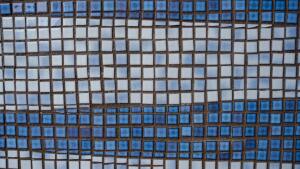Graduate Programme "Religion-Conflict-Reconciliation" (RCR)
The graduate programme "Religion-Conflict-Reconciliation" (RCR) is the first of its kind in Germany. Having started in April 2015 for FSU Jena doctoral students, RCR is located institutionally at the university's Graduate Academy (GA) and is closely linked with the Jena Center for Reconciliation Studies (JCRS).
-
Graduate programme "Religion-Conflict-Reconciliation" (RCR)
RCR studies conflict resolution and reconciliation processes and strategies with a focus on comparative analyses and best practices. The university context offers opportunities to integrate theoretical and practical approaches. The RCR programme is research oriented and values projects that span academic disciplines utilizing the full spectrum of qualitative and quantitative methodologies.
The doctoral programme engages three basic elements: religion, conflict and reconciliation: R-C-R. Doctoral candidates write dissertations focusing on at least two of the three elements. For instance, a mainly theological dissertation must include a second focus on either conflict or reconciliation; a political science dissertation can integrate conflict and reconciliation with less focus on religion.
The JCRS approach to reconciliation studies, anchored by Prof. Martin Leiner's Hölderlin Perspective, respects the deeply complex social phenomena relevant to conflict and reconciliation. The transdisciplinary approach requires deep understanding of multiple disciplines - their basic theories, methodologies, and state-of-the-art findings. The graduate seminar ("Oberseminar") has this knowledge/praxis attainment as one of its key goals.
RCR is an FSU Jena programme that provides institutional structure and support for candidates pursuing doctoral degrees in fields relevant to reconciliation. JCRS, also led by Prof. Martin Leiner, is a university center dedicated to research and activities that promote reconciliation. JCRS has a broad portfolio, with activities like international conferences, research projects, activities with civil society and NGOs, field-research trips, meetings with research partners, and so on.
RCR and JCRS are both institutionally based at FSU Jena's Theological Faculty., but doctoral candidates are not required to have academic credentials in theology. Both RCR and JCRS insure complete freedom for religious and political affiliation. We foster a welcoming, plural, and tolerant environment for all faiths and traditions including but not limited to Muslims, Jews, Protestants, Catholics, Orthodox Christians, Free Churches, Buddhists, Agnostics, and Atheists.
-
General conditions
There are no limitations regarding specific MA degrees as prerequisite to apply to RCR doctoral programme. Each candidate for the degree brings a unique sets of skills, experience, and learning. Thus, all applications are evaluated individually. International MAs are evaluated based upon ECTS equivalence by respective faculties. RCR welcomes cooperation with other institutions including, but not limited to, JCRS's many international partners. Cotutelle agreements (joint supervision) and joint degrees may be possible though they often entail bureaucratic burdens and should be started at beginning of doctoral work.
The university does not charge tuition, but there may be some administrative costs associated with receiving the degree. You are entitled to request a Thoska-card which gives access to libraries, copy machines, and free public transport within state of Thuringia. Exchange opportunities are available through agreements with JCRS' network.Some projects of JCRS like the trilateral project "Hearts of Flesh - Not Stone" provide funding to PhD students and post-docs however doctoral candidates usually apply for their own funding. In Germany, several outside foundations ("Stiftungen") accept applications. RCR and GA staff are very capable and willing to support doctoral candidates in finding grants and writing proposals. Non-German PhD students also have good chances to receive DAADExternal link funding.
With possession of a research-oriented MA degree it is expected that a PhD programme should be completed in six semesters - thus 3 years. Extensions may be provided with justification. PhDs are conferred according to German standards such as Dr. phil., Dr. theol., Dr. iur., Dr. rer. nat., Dr. oec...
-
Language and Residence
Considering that language is not merely a tool but a direct expression of thought and creativity, PhD dissertations may be written in: English, German, French, Italian, Latin, or Spanish. Other languages are also possible. Your supervisor and the faculty must agree if you write in a language which is not German. This is decided on a case by case basis.
It is not mandatory to live in Jena the whole time of your PhD and individual programmes will be developed together with doctoral advisors. However, we strongly recommend at least one semester in Jena to establish working relationships within RCR and JCRS. You are also invited to give two classes during your PhD time (in German or English) as well as to follow courses delivered by the GA. Courses are very helpful for different goals. For example, how to write a scientific paper; how to apply for a grant; how to write a research project; good scientific practice, and so on. Zoom-calls and teleteaching possibilities (offered by the Multimedia Center of FSU Jena) are common procedure at RCR.
-
Oberseminar
RCR doctoral candidates actively engage in a collegial seminar ("Oberseminar") that provides opportunities for transdisciplinary interaction and learning. The Oberseminar gives doctoral and post-doctoral students the opportunity to present their work and engage in constructive dialogue. Various fields of study are involved: Religious Studies, Social Psychology, Ethics, History, Political Science, Philosophy, etc. The topics include various models of reconciliation and conflict transformation, non-judicial mechanisms like Truth Commissions, and the ethical, religious, and psychological dimensions of reconciliation. The first Graduate Seminar "Oberseminar" took place in the WS 2013/14.
As a research platform for international colleagues maintained with a common English, the Graduate Seminar takes place weekly during semester time, with digital sessions (via zoom) as well as in-person.


